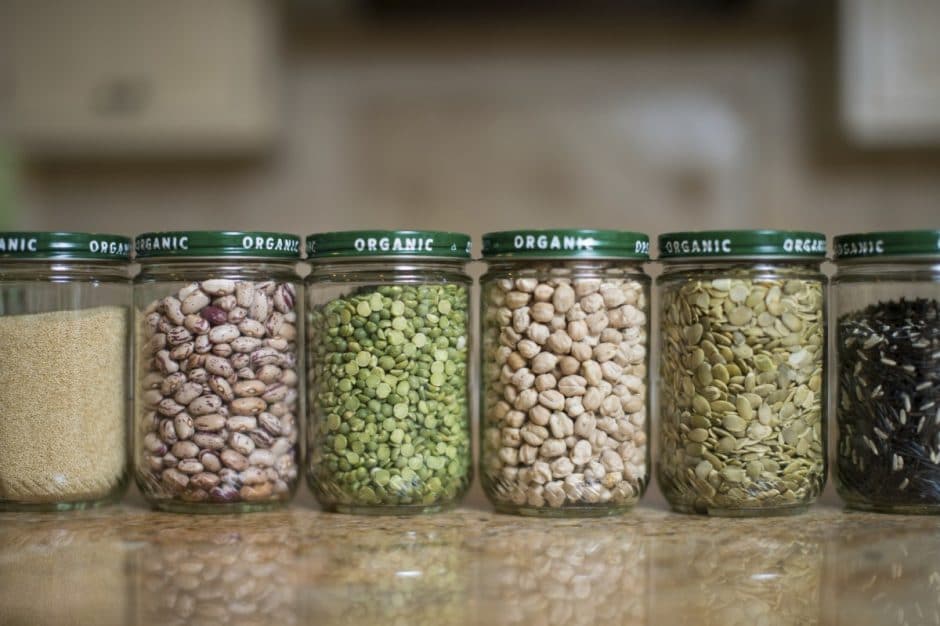“By making a few changes in what you eat and drink and getting at least 30 minutes of activity in every day, you have the power to significantly lower your risk of developing colorectal cancer,” says Alice Bender, MS, RDN, AICR’s Head of Nutrition Programs. “We estimate that about 63,000 cases in the United States every year wouldn’t have to happen if everyone were to make these lifestyle adjustments and stay a healthy weight.”
For National Colorectal Cancer Awareness Month in March, Bender shares six evidence-based steps to reduce your risk below:
Stay a Healthy Weight and Watch Out for Belly Fat
 Research now shows that excess body fat links to increased risk of colorectal cancer, along with 10 other cancers. Carrying excess belly fat—regardless of weight—is a risk factor for colorectal cancer.
Research now shows that excess body fat links to increased risk of colorectal cancer, along with 10 other cancers. Carrying excess belly fat—regardless of weight—is a risk factor for colorectal cancer.
Tip: Become portion-size savvy. Choose larger portions of colorful vegetables, but keep servings of calorie-packed foods like meats, cheese and nuts smaller. Limit desserts and sweets to two or three times a week in small portions.
Fit Activity into Your Day
From housecleaning to running, research shows that moderate daily physical activity—of all types—reduces the risk of colon cancer.
Tip: Find 10 minutes today to move, whether taking a break at work or while watching TV. Build on that over time by taking more activity breaks or extending the 10 minutes to 30 minutes.
Eat Plenty of Fiber
 Eating a diet with plenty of high fiber foods lowers the risk of colorectal cancer. For every 10 grams of fiber coming from foods daily—lightly less than a cup of beans—the risk of colorectal cancer is reduced by 10 percent.
Eating a diet with plenty of high fiber foods lowers the risk of colorectal cancer. For every 10 grams of fiber coming from foods daily—lightly less than a cup of beans—the risk of colorectal cancer is reduced by 10 percent.
Tip: Move to the AICR New American Plate way of eating. Fill two-thirds or more of your plate with vegetables, fruits, whole grains, beans and nuts and no more than one-third with animal protein such as poultry or lean red meat.
Cut the Red Meat & Avoid Processed Meat
The report found that regularly eating high amounts of red meat and even small amounts of processed meat increases colorectal cancer risk. Even processed meats in small amounts, eaten regularly, increase the risk. Processed meats include hot dogs, bacon, sausage and deli meats.
Tip: Limit red meat consumption to 18 ounces per week—roughly the equivalent of five or six small cooked portions of beef, lamb or pork—and avoid processed meat. Try fresh roasted chicken breast, hummus or peanut butter for sandwiches.
Go Moderate on the Alcohol
Tip: Become aware of how much a standard drink is by measuring the following amounts and pouring it into your glassware: 5 ounces of wine, 12 oz. beer and 1.5 ounces of liquor.
Enjoy Plenty of Garlic
 Evidence suggests that regularly including garlic in a diet reduces the risk of colorectal cancer.
Evidence suggests that regularly including garlic in a diet reduces the risk of colorectal cancer.For more information about colorectal cancer prevention, visit the American Institute of Cancer Research online.
- Photos, top to bottom: BigStock, Alexandra Whitney, Barn Images



